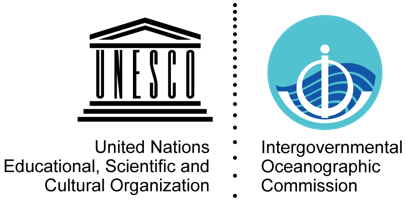y percent of all fish stocks in large marine ecosystems (LMEs) are overexploited and 60% of the world's coral reefs are threatened by local activities, according to the findings of a series of assessments by the Intergovernmental Oceanographic Commission of the UN Educational, Scientific and Cultural Organization (IOC-UNESCO).
The Transboundary Waters Assessment Programme (TWAP) carried out the global assessments of transboundary water systems around the world in LMEs and the open ocean.
 13 July 2016: Fifty percent of all fish stocks in large marine ecosystems (LMEs) are overexploited and 60% of the world’s coral reefs are threatened by local activities, according to the findings of a series of assessments by the Intergovernmental Oceanographic Commission of the UN Educational, Scientific and Cultural Organization (IOC-UNESCO). The Transboundary Waters Assessment Programme (TWAP) carried out the global assessments of transboundary water systems around the world in LMEs and the open ocean.
13 July 2016: Fifty percent of all fish stocks in large marine ecosystems (LMEs) are overexploited and 60% of the world’s coral reefs are threatened by local activities, according to the findings of a series of assessments by the Intergovernmental Oceanographic Commission of the UN Educational, Scientific and Cultural Organization (IOC-UNESCO). The Transboundary Waters Assessment Programme (TWAP) carried out the global assessments of transboundary water systems around the world in LMEs and the open ocean.
UNESCO-IOC released the findings at the Organization of American States (OAS) headquarters in Washington, DC, US, within the framework of TWAP.
The assessments highlight the cumulative impacts of climate change and deleterious human activities, such as over-fishing, on ocean ecosystems and LMEs. They also present projections on the cumulative impacts of local and global threats to ocean health, such as unsustainable tourism and pollution, in marine ecosystems by 2030 and 2050. The findings highlight the interconnections between climate and oceans, underscoring the need to address greenhouse gas (GHG) emissions to avoid further negative consequences on LMEs and human well-being.
On open oceans, the assessment finds that 90% of coral reefs could be threatened by 2030, as a result of combined pressures from local activities and climate change. The report argues that urgent attention is needed to sustainably manage the open ocean ecosystem and its services, among other recommendations.
Ocean governance is severely fragmented, according to the report, which points out that 100 international agreements currently “govern” the open ocean. The assessment recommends improving regulation to address over-exploitation and minimize the sources and impacts of pollution on marine ecosystem health and human well-being. It further recommends that governance arrangements for the open ocean connect to areas under national jurisdiction at the regional level to promote coordination and enforcement.
On LMEs, the assessment states that LMEs contribute an estimated US$28 trillion annually to the global economy through fish for food, tourism and recreation, and protection from flooding and erosion, among other contributions. Such benefits are at risk, the assessment cautions, due to changes in natural global processes, activities on land and in the sea, and human use of natural resources in LMEs. For example, the report finds that nearly 80% of LMES have three or more of their fisheries categorized as medium to high risk. The assessment highlights, inter alia: a 25% reduction in fish catch potential for high-risk LMEs in the East Siberian Sea; “ubiquitous” floating plastic debris in the global ocean that is harmful to marine life; and 16% of LMEs at high risk from agriculture and sewage nutrients that can lead to harmful algal blooms.
The assessments also underscore the role of healthy and productive transboundary water systems in helping countries to achieve the Sustainable Development Goals (SDGs) related to poverty, hunger and sustainable economic growth.
The assessments recommend, inter alia: protecting marine habitats; improving LME governance; integrating consideration of natural benefits from marine ecosystems into policy; improving the quality of data and information, including at sub-LME scales; and strengthening country capacity to conserve and sustainably use the oceans, seas and marine resources.
The UN Environment Programme (UNEP) and UNESCO-IOC have released a range of knowledge products from TWAP data, including a global assessment report and a summary for policymakers. The reports aim to support international organizations and national decision makers in setting priorities for policy interventions and in developing a framework for periodic assessments, including the World Ocean Assessment Summary. The Global Environment Facility (GEF) provides financial support to TWAP. [UNESCO Press Release] [Publication: The Open Ocean: Status and Trends: Summary for Policymakers] [Publication: LMEs: Status and Trends: Summary for Policymakers] [TWAP Website] [TWAP Publications Website] [UN Press Release]